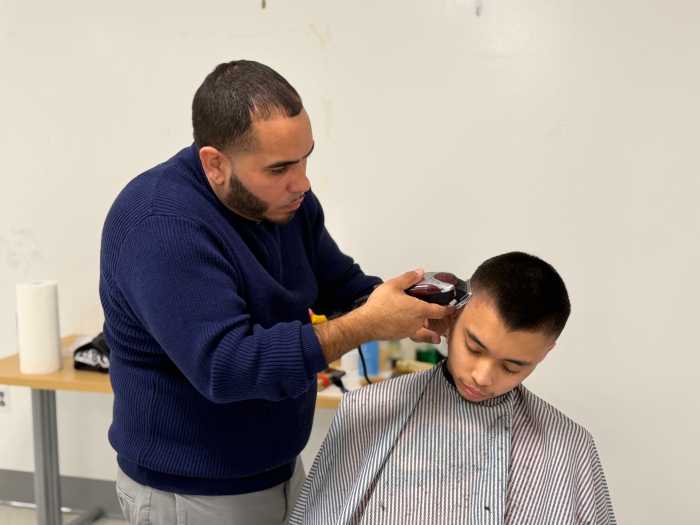Dynishal Gross is the executive deputy commissioner for the NYC Department of Small Business Services, overseeing four divisions supporting small businesses, jobseekers, government contractors, and commercial corridors. She previously served as deputy commissioner for the division of economic and financial opportunity, focused on increasing equity for minority and women-owned businesses. With a background in public service, she holds degrees from Cornell University, Baruch College, and Columbia University School of Law.
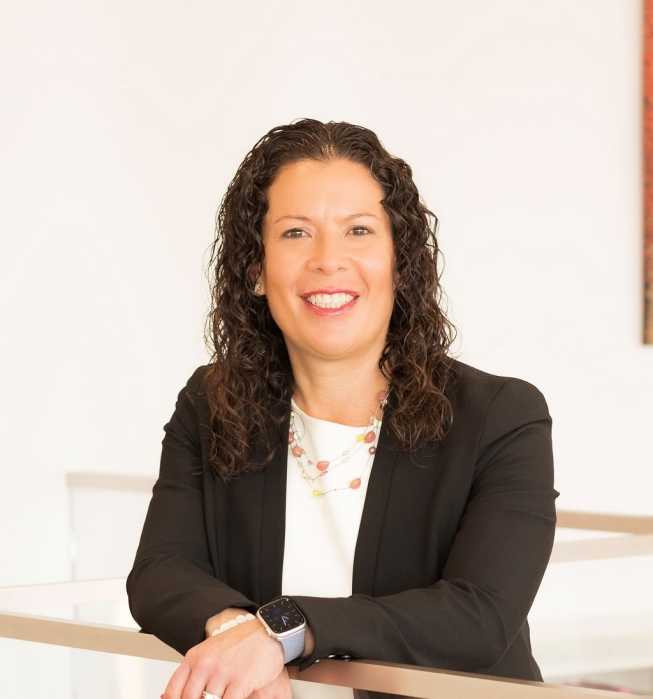
Jomil Guerrero
Chief Diversity Officer, New York Life

Jomil Guerrero is New York Life’s chief diversity officer, responsible for continuing to embed a diverse and inclusive culture into the company’s talent practices, business strategy, and community engagement. Most recently, Guerrero served as chief operating officer of IndexIQ while also co-leading New York Life’s Social Justice Working Group. She joined New York Life in 2011 as director of finance for both New York Life Investment Management and New York Life Investors.
How do you define diversity, equity and inclusion?
The ability to be your authentic self. It’s about celebrating differences, valuing each other’s unique perspectives, culture, talents, and experiences and creating impact by supporting one another. We are a community of caring professionals. We empower each other and believe in our collective ability—and responsibility—to create better tomorrows in the world around us. This shared spirit of community and responsibility is what drives our broader approach to DEI.
What motivated you to become a DEI advocate?
My childhood and family helped to prepare me to celebrate diversity in all its forms and prepare me for my role as chief diversity officer. I’ve been the “new girl” countless times in my life, and while it wasn’t easy, this was a gift that enabled me to adapt and thrive in a world of change. I saw opportunities to celebrate diversity, see unfamiliar places, meet new people, and connect to the experience of others.
What do you think are some of the benefits of promoting diversity, equity and inclusion?
It’s important that we find value in each other’s experiences, differences, and unique characteristics as it enables us to respond with relevance, empathy, and compassion. By celebrating and sharing our authentic selves, we gain a greater appreciation of each other and the diversity that surrounds us. We all have different backgrounds, experiences, and perspectives. The ideas and questions we hear from customers help us to think differently, innovate, and create better customer experiences and solutions.
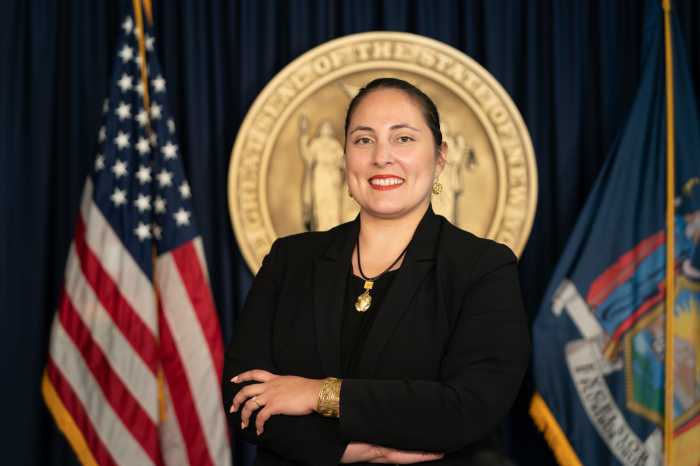
Julissa Gutierrez
Chief Diversity Officer, New York State

Julissa Gutierrez is a dedicated public servant and diversity and inclusion practitioner. As the daughter of Colombian immigrants, her bicultural identity inspires her duties as New York State’s chief diversity officer. She spearheads initiatives to increase diversity and the participation of women and marginalized communities in government. She has led the State’s Vaccine Equity Task Force, organized the State’s inaugural DEI Symposium, championed minority and women-owned business enterprises, and more.
How do you define diversity, equity, and inclusion?
Diversity, equity, and inclusion embody the essence of creating a society that values and uplifts the experiences of all individuals, especially the historically marginalized. Equity ensures the accessibility of resources, opportunities, and support needed to thrive. Inclusion requires actively fostering an environment where every voice is valued. By championing these principles, we are truly celebrating the rich tapestry of humanity and paving the way for an equitable future.
What motivated you to become a DEI advocate?
Growing up as the daughter of immigrants, I witnessed the challenges and barriers that certaincommunities face on their path to success. These firsthand experiences fueled my passion to advocate for DEI and desire for a society where everyone, regardless of their background, has equal opportunities. Serving as Governor Hochul’s chief diversity officer allows me to combine my personal experiences and professional expertise to drive meaningful change and dismantle the systemic barriers that hinder progress.
What do you think are some of the benefits of promoting diversity, equity, and inclusion?
By celebrating diversity, we harness the power of different perspectives and experiences, leading to more innovative solutions to complex challenges and deeper understandings of each other’s distinct realities. Inclusive environments foster a sense of belonging, which ultimately enhances productivity and overall performance. When we prioritize equity, we foster social cohesion, reduce disparities, and drive sustainable progress for generations to come.
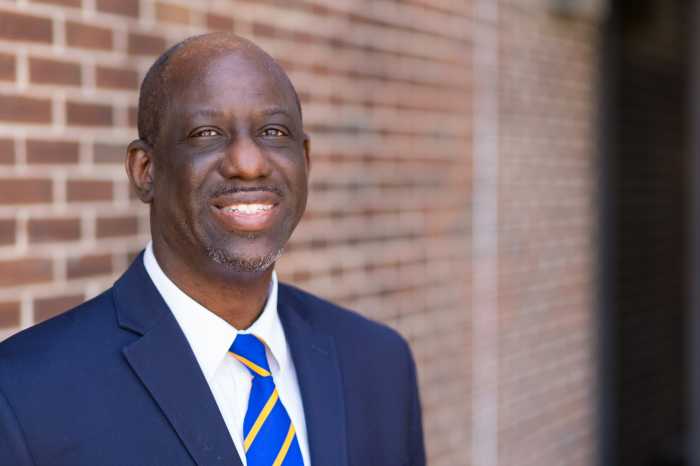
Brian Harper
Vice President for Equity and Inclusion and Chief Medical Officer, New York Institute of Technology

Brian L. Harper, MD, MPH is the New York Institute of Technology’s Inaugural vice president for equity and inclusion in which he was appointed in 2020. In this role, Dr. Harper is charged with creating a strategy to enhance, and developing initiatives that promote diversity, equity inclusion, and belonging. He also serves as the institution’s chief medical officer providing oversight for two health centers and focusing on communicable diseases on campus.
What motivated you to become a DEI advocate?
I have a long history of addressing health disparities with a focus on the social determinants of health. Fully understanding the determinants that lead to health inequities creates a natural tendency to advocate for issues pertaining to diversity, equity and inclusion.
What do you think are some of the benefits of promoting diversity, equity and inclusion?
Diversity is a crucial component in the college environment as students likely learn most from those who are different to themselves. Diversity, equity, inclusion and belonging initiatives create an environment that is not only conducive to learning but additionally prepares students for a future workplace that will inevitably be more diverse.
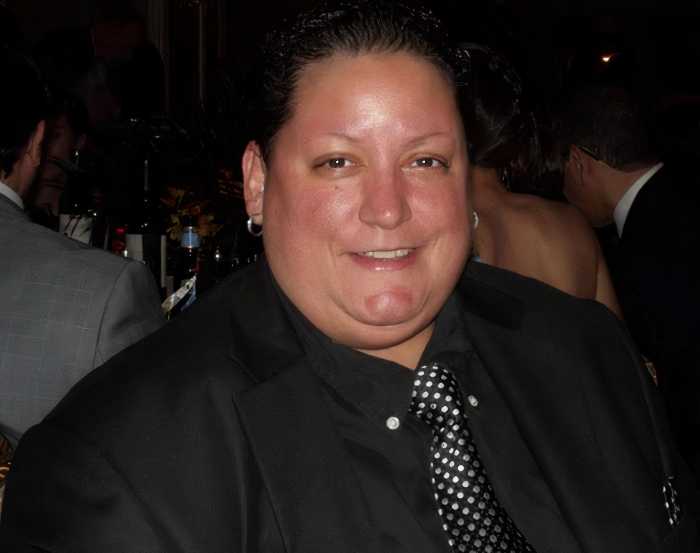
Carmen Hernandez
President, The NYC LGBTQS Chamber of Commerce Inc.

Rev. Carmen Hernandez currently serves as president of the NYC LGBTQS Chamber of Commerce Inc. Rev. Carmen was born in Rio Piedras, Puerto Rico on April 28, 1963. At six months old, she moved to New York City and has lived in the Bronx ever since. Rev. Carmen comes from a large family with a total of 18 siblings on both her mother’s and father’s side.
How do you define diversity, equity and inclusion?
I represent diversity, equity and inclusion, by being a white Latina, a woman, a lesbian, a Christian and a disabled person. I have experienced discrimination on many levels. Many individuals face discrimination and there is a lot of work ahead to resolve the issue we face every day. While there is no end in sight, we must keep moving and never give up.
What motivated you to become a DEI advocate?
The discrimination that I went through myself, as a girl and now as a woman, along with seeing what my friends have gone through motivated me. I am particularly motivated by the unjust treatment that the LGBTQ community continues to experience, especially Transgender individuals. As well as the discrimination towards single mothers and people of color. The bottom line is that my love for humanity motivates me.
What do you think are some of the benefits of promoting diversity, equity and inclusion?
I think, hope and pray that promoting DEI will build solid relationships between all individuals. At my doctor’s office, there is a quote on the wall that says, “Coming together is the beginning. Keeping together is progress. Working together is success.” Now we need to see that in practice.
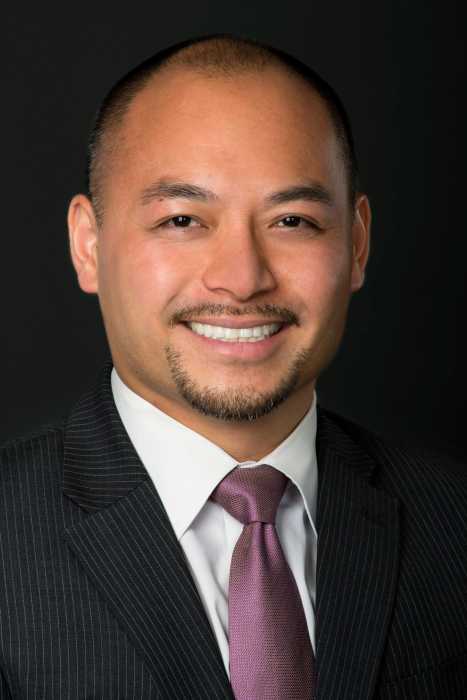
Wayne Ho
President and CEO, Chinese-American Planning Council

Wayne Ho leads the nation’s largest Asian American social services organization, reaching over 280,000 New Yorkers of all ages and backgrounds. Previously, Wayne held leadership roles at racial and economic justice organizations. He has received awards from government officials and nonprofit organizations and often asked to speak at national conferences and media outlets. Wayne serves on numerous nonprofit boards and government advisory boards. He earned his B.A. from UC Berkeley and MPP from Harvard University.
How do you define diversity, equity and inclusion?
Diversity, equity, and inclusion refers to the structural, institutional, and organizational changes needed to advance justice for marginalized communities, especially people of color.
What motivated you to become a DEI advocate?
As a Chinese immigrant, I often recall the experiences — positive and negative — that my family had navigating different systems. From attending public schools and finding housing to looking for jobs and applying for citizenship, we experienced institutions that embraced us and that marginalized us. I have spent over 25 years in the nonprofit sector because I want to advocate for policies and practices that treat people of all backgrounds with respect and dignity.
What do you think are some of the benefits of promoting diversity, equity and inclusion?
As the nation, state, and city continue to become more diverse, it has become more important than ever to ensure opportunity and equity for everyone. Promoting DEI helps organizations to better achieve their missions because staff of all backgrounds are embraced and empowered and community members of all backgrounds are educated and engaged.
Megan Hogan
Chief Diversity Officer and Global Head of Talent, Goldman Sachs
Megan Hogan is the chief diversity officer and global head of talent at Goldman Sachs. In this role, Megan is responsible for the firm’s global diversity and inclusion strategy. She has led several initiatives within the company, including a $25 million commitment to historically Black colleges and universities and a Neurodiversity Hiring Initiative internship program. Megan earned her B.A. from Yale University and J.D. from Fordham University of Law School.
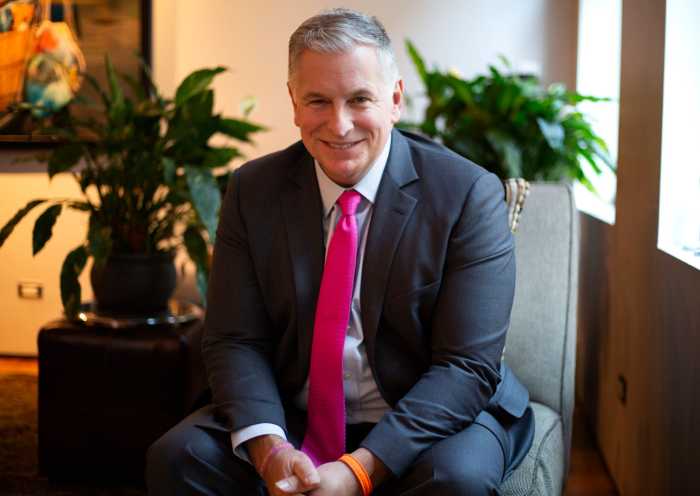
Kevin Jennings
CEO, Lambda Legal

Kevin Jennings began his career as a high school history teacher and helped students create the nation’s first Gay-Straight Alliance club in 1988. He went on to found GLSEN in 1990. In 2009 Kevin became an assistant secretary of education in the Obama Administration. In 2019 Kevin became the CEO of Lambda Legal, the nation’s oldest legal advocacy group for the LGBTQ+ community. Kevin has authored seven books and been executive producer on four documentaries.
How do you define diversity, equity and inclusion?
A society where everyone equally feels like they belong.
What motivated you to become a DEI advocate?
Growing up in a multiracial, low income family headed by a single mom.
What do you think are some of the benefits of promoting diversity, equity and inclusion?
People do better when they feel free to be their authentic selves. It’s not rocket science.

Simran Kaur
Chief People Officer, MetroPlusHealth

Responsible for its HR division, Simran Kaur has implemented a people-centric vision to ensure MetroPlusHealth attracts and retains top talent committed to its mission. She fosters a culture of diversity and inclusion contributing to the continued growth of MPH as a high-quality, affordable health insurance plan for its 700,000+ members. Simran holds a B.A. in political science and history from Columbia University. She is a subject matter expert in employment and labor law, including the Fair Labor Standards Act, the Family and Medical Leave Act, and the Americans with Disabilities Act.
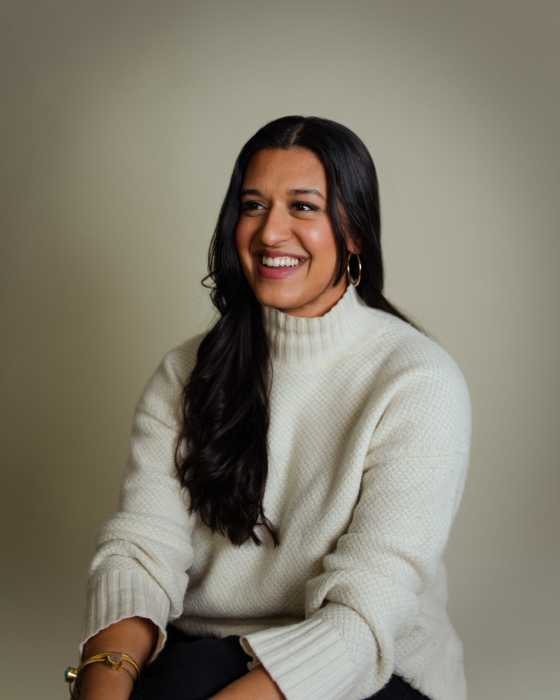
Leena Kulkarni
Head of Diversity, Equity, Inclusion, and Belonging, Array

Leena Kulkarni is Array’s head of diversity, equity, inclusion, and belonging (DEIB). Her focus is on DEIB data and analytics, learning and development, and behavioral science. She’s worked with F500/1000 organizations, nonprofits, universities, and startups and holds an MPH from Harvard School of Public Health, an M.Ed from the UNLV, and a B.S. from Cornell University. Her writing and working papers can be found in: Harvard Business School Publishing, The Huffington Post, and PLOS Medicine.
How do you define diversity, equity and inclusion?
Diversity is the acknowledgement and representation of human differences. Equity helps to ensure fairness. Inclusion fosters acceptance, and belonging is about purpose and connectedness. Together, DEIB are lenses through which we can mitigate barriers to advancement, recognize systemic injustice, and encourage, enable, and empower all people to thrive —especially those who’ve been historically excluded and/or marginalized. This work requires ongoing commitment and collective action to create sustainable change towards a more equitable world.
What motivated you to become a DEI advocate?
Growing up in six countries that span three continents, I grew up immersed in a vast array of cultures and perspectives which fueled my passion for working with people and promoting the transformative power of diversity, equity, and inclusion and belonging work. Additionally, witnessing the profound effect that early DEIB programs had on my parents’ lives and other family members first-hand continues to inspire me to advocate for equal opportunities and inclusivity for all.
What do you think are some of the benefits of promoting diversity, equity and inclusion?
Internally, a strong commitment to DEIB allows organizations to make well-rounded, informed, more innovative decisions. It equips them to more effectively address inequalities, contribute to positive social impact, foster inclusive practices, and create more equitable and just societies. Organizations who reflect the vast diversity of their users are able to develop products and services that resonate with a broader range of their community and customers, leading to greater competitiveness and societal progress.





